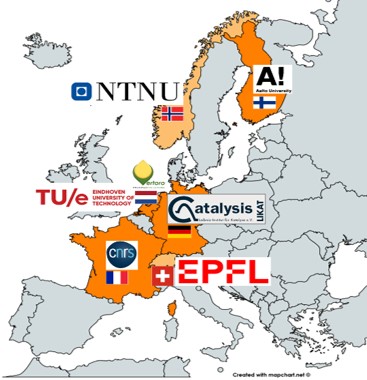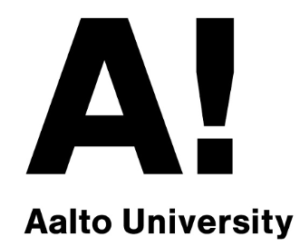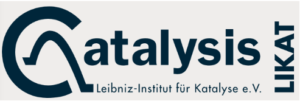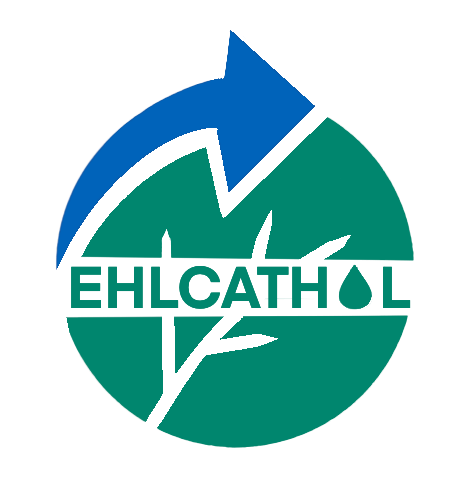
 Aalto korkeakoulusäätiö sr. https://www.aalto.fi/en/aalto-university
Aalto korkeakoulusäätiö sr. https://www.aalto.fi/en/aalto-university
Aalto University works towards a better world through top-quality research, interdisciplinary collaboration and pioneering education. The university was founded 2010 as a merger of the Helsinki University of Technology, Helsinki School of Economics, and the University of Art and Design Helsinki. Aalto is also partner in the European University Pilot UNITE! The Aalto community has about 17600 students and more than 4399 employees. The School of Chemical Engineering (CHEM) has among its research priorities advanced metals, active and functional materials, sustainable technologies, circular economy, etc. The School deals with materials, their production and related processes, design and applications and has a strong cooperation with the Finnish industry. Research in the Department of Chemical and Metallurgical Engineering (CMET) targets to sustainable utilization of raw materials, designing more efficient processes and developing new materials and products. The department’s expertise enables sustainable future with high performance products and processes in circular economy and bioeconomy. Research group of Industrial Chemistry, focuses on research related to chemical reaction engineering and reactor design. This group will improve the performance of existing commercial chemical convertors and the understanding on the governing factors, e.g. the mechanical strength of solid catalyst and the mechanical reliability of the catalytic convertors; improvement of the performance of DeNOx, three-way and hydrogen production catalysts and convertors. The group also promotes the commercialization of promising new reactions through revealing the limiting factors, e.g. lignocellulose fractionation and transformation to chemicals and fuels; photo-catalytic water splitting; advanced batteries; solid oxide fuel cells with direct carbon and hydrocarbon fuels; methane catalytic decomposition to hydrogen and nano-carbons and NO direct decomposition.
 Leibniz - Institut für Katalyse E.V. an der Universitat Rostock
Leibniz - Institut für Katalyse E.V. an der Universitat Rostock
https://www.catalysis.de/en/home/
Leibniz-Institut für Katalyse e.V. (LIKAT) in Rostock is among Europe’s major research institute in the area of applied catalysis. The Institute is strong in both homogenous as well as heterogeneous catalysis. LIKAT is involved in many collaborative projects with the chemical & pharmaceutical industry. At LIKAT, in the department of Matthias Beller different aspects in the field of applied catalysis and sustainable chemical synthesis are investigated. A central strategic aim is the development of environmentally benign catalysts and organic synthetic protocols. In addition, the transfer of these results to specific products or processes is a particularly important aspect. So far, the scientific activities of the group led to >970 original publications and four transfers of catalytic processes to industrial partners (Evonik, Bayer).
 Ecole Polytechnique Federale De Lausanne https://www.epfl.ch/en/
Ecole Polytechnique Federale De Lausanne https://www.epfl.ch/en/
EPFL is Europe’s most cosmopolitan technical university. It welcomes students, professors and collaborators of more than 120 nationalities. EPFL has both a Swiss and international vocation and focuses on three missions: teaching, research and innovation. EPFL collaborates with an important network of partners, including other universities and colleges, secondary schools and gymnasiums, industry and the economy, political circles and the general public, with the aim of having a real impact on society. The Institute of Chemical Science and Chemical Engineering (ISIC) develops activities on two main sites, one in Lausanne and one in Sion supported by analytical platforms, workshops, chemical stores and IT services.
The research in Paul Dyson’s lab centres on organometallic chemistry at the interface with catalysis and material science. The main topics studied in his lab include synthesis of functional organometallic compounds; design of new organometallic drugs and studying their mechanism of action; design of new homogeneous and nanoparticle catalysts; mechanistic studies of catalysed reactions and Ionic liquids – design, properties, reactivity and catalysis. The group also promotes the know-how transfer from laboratory to industry partners and commercialization functionalized ionic liquids. URL for web site: www.lcom.epfl.ch
![]() Norges Teknisk-Naturvitenskapelige Universitet NTNU https://www.ntnu.edu/
Norges Teknisk-Naturvitenskapelige Universitet NTNU https://www.ntnu.edu/
Norwegian University of Science and Technology (NTNU) is a technological university. Currently, NTNU educates 39,000 students. NTNU has 7 faculties with a total of 52 departments covering all major technical scientific fields. NTNU is well known for its close collaboration with industry, and particularly with its R&D partner SINTEF, which provided it with the biggest industrial link among all the technical universities in the world. Norway is an energy national. NTNU has a great interest and focus on the field of energy. Increasing the share of renewable energy is a national ambition (20% renewable fuels by 2020), as well as lowering emissions of CO2 (Paris). Norway has wooden resources as well as waste and other organic sources of interest for exploitation towards fuels. Norway recently started a national centre for renewable energy (FME), including national industrial stakeholders, research institutes and universities, joining forces for implementation of renewable fuel technology. In addition, a national infrastructure for biorefinery research (NorBioLab) has been established, accessible to national and international stakeholders for the development of processes for the sustainable conversion of Norwegian land and marine based biomass to novel, environmentally benign biochemicals, biomaterials and bioenergy products.
Catalysis group at the Department of Chemical Engineering is the largest catalysis group in Norway. The research spans from fundamental studies of ideal surfaces to studies of real catalysts and process development work in small pilot plants. The Catalysis Group was a research partner in a Centre for Research-based Innovation (Innovative Natural Gas Processes and Products – inGAP) in the period 2007-2015. Since 2015, the Catalysis Group is heading a new Centre for Research-based Innovation: industrial Catalysis Science and Innovation (iCSI) for a competitive and sustainable process industry. The main objective of iCSI is to boost industrial innovation and competitiveness as well as to provide efficient, low-emission process technology. Catalysis group is WP leader in the national center for renewable energy (FME), Bio4Fuel, looking into thermochemical conversion of biomass to biofuels, including fast pyrolysis. Catalysis group is a member of NorBioLab to provide the tools to develop the processes to convert the biomass resources.
The Department of Chemical Engineering at NTNU has a long experience in the development of industrial catalyst for various chemical processes, and recent years focused on development of catalysts for energy process, such as catalysts for hydrogen production, fuel cell catalysts, electrochemical CO2 conversion, biomass conversion to chemicals and fuels. Catalysis group is skilled in the development of technological platform and more specifically for thermo-conversion of biomass with different kind of technologies: fluidized bed fast pyrolysis, entrained flow fast pyrolysis, tandem reactions to convert light oxygenates to aviation fuels, catalytic liquefaction.
 Centre National de la Recherche Scientifique CNRS
Centre National de la Recherche Scientifique CNRS
https://www.cnrs.fr/en
CNRS-LRGP, a joint unit of CNRS and Université de Lorraine, is the largest French laboratory in process engineering. The LRGP team performing the proposed work is specialized in experimental and modelling study of combustion kinetics. The studies undertaken by this team concern engine-fuel adaptation in order to improve the
 efficiency of engines and to limit the emission of pollutants. Gasoline and Diesel fuels contain a large number of molecules belonging to several major hydrocarbon families. Biofuels contain also oxygenated species, such as alcohols and esters. Oxidation and combustion of these complex blends occur by radical chain reactions involving hundreds of molecular and radical species and several thousands of elementary reactions. This team is also specialized in the development of detailed mechanisms with the idea of predicting the formation of toxics and pollutants. In order to obtain data to validate the proposed models, this team also performs experimental measurements especially using
efficiency of engines and to limit the emission of pollutants. Gasoline and Diesel fuels contain a large number of molecules belonging to several major hydrocarbon families. Biofuels contain also oxygenated species, such as alcohols and esters. Oxidation and combustion of these complex blends occur by radical chain reactions involving hundreds of molecular and radical species and several thousands of elementary reactions. This team is also specialized in the development of detailed mechanisms with the idea of predicting the formation of toxics and pollutants. In order to obtain data to validate the proposed models, this team also performs experimental measurements especially using
jet-stirred reactors and burners with a wide range of analytical diagnostics.
 Technische Universiteit Eindhoven https://www.tue.nl/en/
Technische Universiteit Eindhoven https://www.tue.nl/en/
Eindhoven University of Technology (TU/e) is a research university, founded in 1956, specializing in the engineering sciences and technology. The Department of Chemical Engineering and Chemistry aspires to be an academic institution for education and research in chemical science and engineering of the highest international standard. The aim is to generate and to develop technology and scientific knowledge relevant for the long-term needs of society. Scientific curiosity and the use of newly generated knowledge are the main driving forces behind the continuing enhancement of the chosen fields of expertise. The Inorganic Materials & Catalysis (IMC) group investigates heterogeneous catalysts that are pivotal to clean and sustainable chemical conversion processes for production of fuels and chemicals. Heterogeneous catalysis significantly shapes society, as it plays a crucial role in the production of base chemicals, fuels for mobility and the synthesis of fine chemicals and pharmaceuticals. At IMC, we investigate the atomic scale relation between the active site and its immediate surrounding and catalytic performance. The group addresses this challenge by combining detailed characterization of nanoscopically organized and well-defined chemically functionalized catalytic solid materials under realistic conditions with advanced kinetic testing supported by multiscale theoretical modeling concepts. The catalytic systems selected deal mostly with current needs to develop a sustainable economy. The scientific challenge is to analyze catalyst synthesis and performance on relevant scales of the underlying processes. The catalysts of choice are usually complex and in recent years computational tools have been developed to model the respective relevant processes not only in space but also in time. It implies a significant focus on the detection and simulation of the state of the catalyst at reaction conditions. The main research directions within IMC are: (i) Catalysis for C1 Chemistry, (ii) Catalysis for Renewable Energy Storage, and (iii) Catalysis for Bio-Renewables. Website: www.catalysis.nl
 Vertoro www.vertoro.com
Vertoro www.vertoro.com
Vertoro, limited liability company and micro SME, is a spin-off from an ongoing public-private partnership between Royal DSM, Eindhoven University of Technology, University of Maastricht and the Brightlands Chemelot Campus. Her technology is designed to convert non-edible biomass, such as wood and lignin, to so-called crude lignin oil (CLO) and is presently being piloted in the United States and the Netherlands. Vertoro is venture capital-backed and has 8 employees.
The R&D department will be the main department active in this project. Ancillary roles are foreseen for the business development, life cycle assessment, and marketing departments.
Vertoro, limited liability company and micro SME, is a spin-off from an ongoing public-private partnership between Royal DSM, Eindhoven University of Technology, University of Maastricht and the Brightlands Chemelot Campus. Her technology is designed to convert non-edible biomass, such as wood and lignin, to so-called crude lignin oil (CLO) (derivatives) and is presently being piloted in the United States and the Netherlands. Vertoro is venture capital-backed and has 8 employees.
